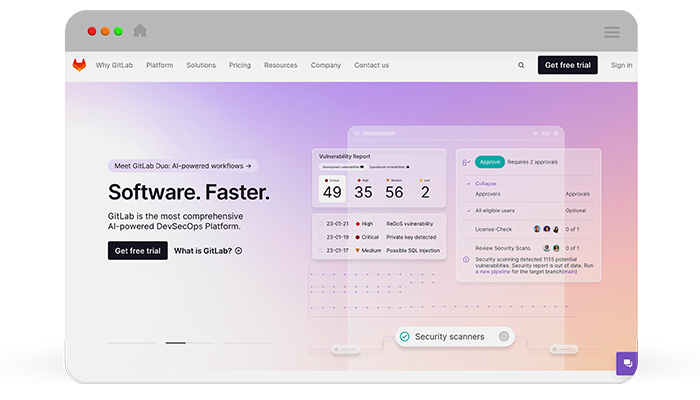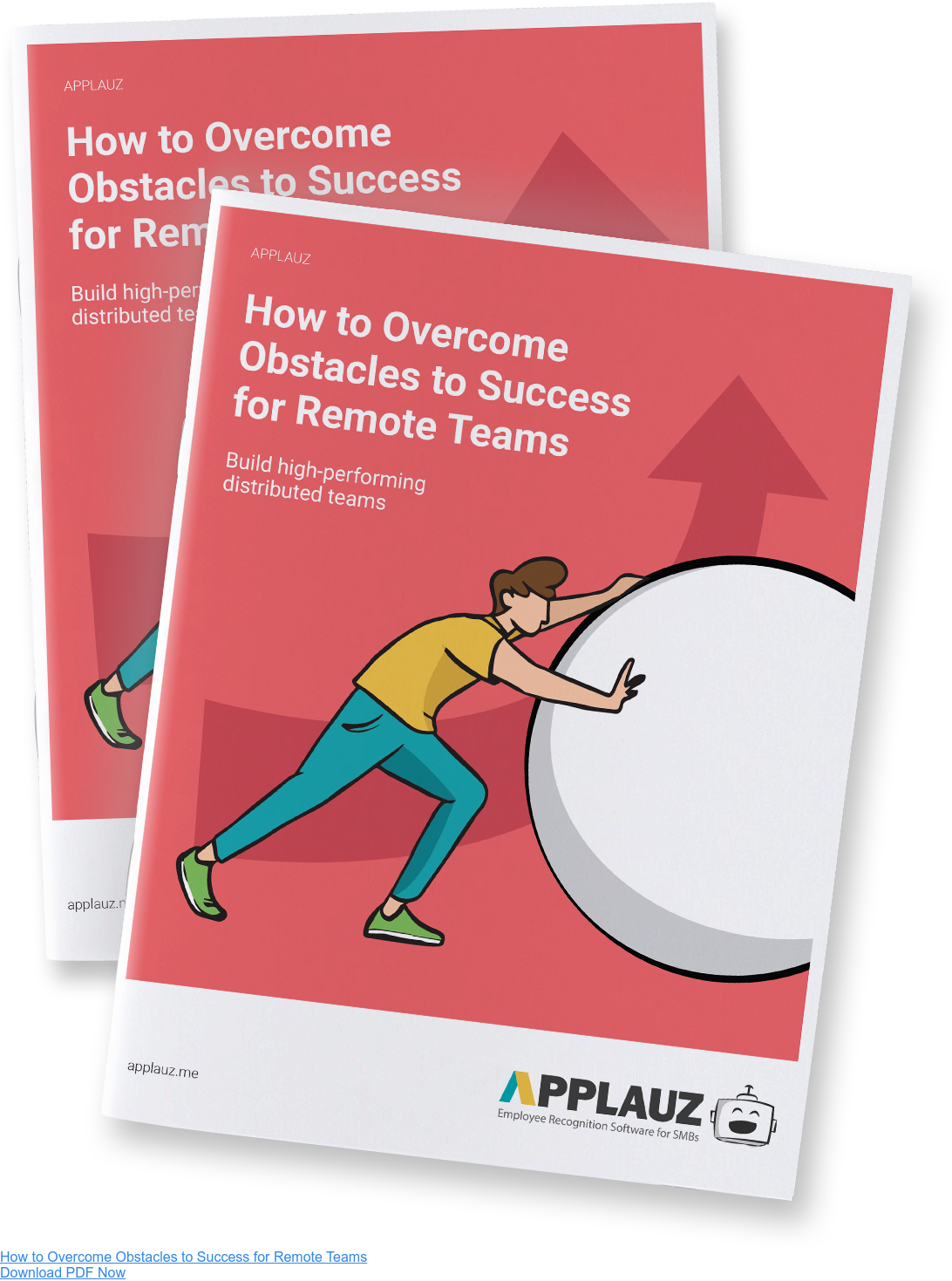Gone are the days when “remote work” meant putting in a lot of effort to find the television controller (which was always wedged into the couch cushions).
Instead, today’s ever-evolving corporate landscape—where agility, resilience, and adaptability are always essential—has undergone an indefinite culture change with the advent of “remote work.”
Employees no longer gauge job satisfaction solely by their salaries; they seek an environment that fosters growth, connectivity, and purpose. As the world moves towards an increasingly remote workforce, cultivating a thriving remote work culture has emerged as a strategic imperative.
According to a landmark 2019 Glassdoor survey—that polled over 5,000 workers from the United States, the UK, France, and Germany— 77 percent of surveyed employees said they would “consider a company’s culture” before seeking a job there
Another 56 percent said a good workplace culture was “more important than salary” for job satisfaction. In total, 73 percent of respondents said they “would not apply to a company unless its values align with [their] own personal values.”
Keep in mind, Glassdoor’s survey was conducted before the worldwide pandemic which made remote work cool.
In short, the concept of work culture has never been more crucial—and it’s here to stay.
If you’re an HR Manager, high-level exec, or anyone else in the business world interested in this new working model, we’ve put together a comprehensive guide on how to build a remote work culture in 2023, and most importantly, we’ll describe what an amazing remote work culture feels like.
What is a Remote Work Culture?

Company culture is the heartbeat of any organization.
It encompasses values, goals, and a shared mission that shapes the behavior and attitudes of its members.
However, building a robust culture is a journey that requires sustained efforts from leadership, HR departments, and employees themselves–it's not something that materializes overnight.
Yet, the remote work trend (accelerated by COVID-19) poses a unique challenge. Employees dispersed across various locations and verticals often lack the face-to-face interactions that nurture traditional work cultures. This is where the notion of a remote work culture comes into play.
Remote work culture refers to the digital culture within an organization that enables employees to stay connected through shared experiences, interests, and priorities. It transcends physical boundaries and gives remote employees a sense of belonging.
Every organization has a culture, whether it's consciously defined or not. Employees intuitively understand what actions are rewarded, what's expected of them, where they have autonomy and where they will need approval. As remote work continues to grow, it's imperative for companies to actively cultivate and implement a remote work culture.
Why is Remote Company Culture Important?

Curbing Remote Isolation: Loneliness ranks as one of the significant challenges for remote workers. A robust remote work culture combats this by fostering a shared sense of purpose, camaraderie, and informal interactions that counteract remote isolation.
AKA: You can never have too many Slack GIFs.
Future-Proofing Your Organization: Remote work is becoming the new normal. Even as we emerge from a worldwide pandemic, a substantial portion of the workforce is likely to remain remote. Cultures that can adapt to this transition will continue to thrive, maintaining efficiency and productivity.
Building Long-Term Relationships: A strong remote work culture enhances trust and communication among employees, making it easier for remote workers to connect with their in-office counterparts. This smooth transition bolsters relationships and boosts the overall work culture.
The remote company culture therefore becomes of paramount importance: as execs, how can you ensure both remote and in-office employees are being treated the same and enjoying the same perks?
Examples of Companies with Remote Work Culture
Many companies have adopted a 100% remote work option, but few have intentionally fostered remote work cultures designed to help them thrive. Here are a handful of new-age companies that are entirely remote and have adapted their company cultures to meet the challenges and embrace the opportunities of remote work.
Zapier

Zapier is a prime example of a company with a thriving remote work culture.
They have intentionally cultivated an environment where remote work is not just accepted but embraced. The company offers generous benefits like a stipend for home office setup and encourages employees to take "disconnect" time to recharge.
Zapier CEO Wade Foster says the best thing about remote work is its flexibility. “I jump right into work when I'm ready. And leave when I'm done,” he says. “There's zero friction between working and not."
Specifically, Foster says fully remote work allows you to tap into the global talent pool, it's cheaper (no need for an office), and the CEO claims it's easier for employees to focus.
Gitlab

GitLab is a pioneer in remote work.
They have a handbook that's open-source, where anyone can see how the company operates internally. They've embraced transparency and prioritized nonparallel communication, allowing employees from various time zones to collaborate seamlessly.
“The past two years enabled tens of millions of people to question conventional notions of work and life,” says the 2023 The Remote Playbook. “They’re now free to make better choices about their lives – choices that will benefit small towns, big cities, the underrepresented, and the underserved.”
Interestingly, GitLab’s playbook talks about the pitfalls of hybrid work environments, specifically saying most companies “run the risk of a diminished employee experience” when you have a set of people working remotely in a hybrid organization.
“In a job market where job seekers have more choices than ever, the onus is on business leaders to ensure remote work is not offered as just a short-term recruitment or retention tool,” says GitLab.” It takes a tremendous amount of effort, intentionality, and reconfiguration to execute a sustainable hybrid model well.
Buffer

Buffer is known for its transparent and remote-friendly culture.
They share their employees' salaries and even have a "no internal email" policy to promote effective communication. Buffer actively invests in tools and practices to ensure a strong remote culture.
According to the company, Buffer has a team of 79 remote workers in total— its entire workforce. Buffer CEO and co-founder Joel Gascoigne says his team is more productive, has “incredible amounts” of freedom, travels the world together, and cites that “timezones are awesome.”
Specifically, Gascoigne says timezones have become a “huge help” for the company’s development cycle. With engineers in the US, UK, Asia, and Africa, the software company, “literally never stop coding.”
As the company says, “The sun never sets on Buffer!”
Ideas on How to Create a Remote Work Culture

1. Build Trust
We can’t stress this enough: trust. Building a healthy remote work culture starts with trust.
Leaders should communicate high-level decisions with their teams, showing that they trust their employees to manage their work, especially from home (or cafe, restaurant, cottage, beach, boat, etc.)
Focusing on output rather than hours spent online is crucial to non-office work. Employees should be given the space to manage their work independently.
Trust is a two-way street: Employees will trust their employers when trust is reciprocated. Micromanagement should be avoided, and instead, employers should check in with their teams to ensure that they have the support to achieve their objectives.
2. Transparency on Your Company's Mission, Goals, & Strategies
A strong remote work culture is rooted in a shared understanding of the company's mission and goals.
Clearly articulate the company's mission and both short-term and long-term objectives. This serves as a constant reminder to employees, guiding their efforts and reinforcing a sense of purpose.
You can never be too clear in communicating the broader path of your company to the people who will help you get there.
3. Use the Right Remote Tools
Technology is not only the backbone of remote work culture; it’s also the catalyst.
Choose the right tools that enable seamless communication and collaboration among remote teams.
Digital workplace platforms provide unified virtual spaces for teams to work together effectively, fostering a positive remote culture (we’ll dive specifically into remote tools a bit later).
4. Cement Your Remote Work Policy
To ensure clarity and consistency, define your organizational culture and remote work policy explicitly.
Address questions like the number of hours employees need to be online, availability across time zones, flexibility in work schedules, office visitation requirements, and home office setup stipends.
Clarity in these areas contributes to a smoother remote work experience and a stronger company culture.
5. Prioritize Good Ol’ Fashioned Face-to-Face Time
The flip side of remote work’s flexibility is that it can lead to isolation, especially in the long term.
Encourage regular video calls and 1:1 meetings to bridge the communication gap. These interactions build connections and trust and provide a moment to celebrate individual achievements. Encouraging team members to switch on their video cameras during meetings reinforces values through face-to-face communication.
6. Gather Feedback and Adjust Accordingly
Creating and developing a remote work culture is an ongoing process.
Ask remote employees for feedback regularly to understand what's working and what needs improvement. This iterative approach ensures that your remote work culture continues to evolve and adapt to meet the needs of your employees.
The Role of Leadership in Shaping Remote Work Culture

Building a thriving remote work culture is a collective effort, but it's leadership that plays a pivotal role in shaping the culture of an organization. Here, we'll delve into how effective leadership can be a driving force in establishing a strong remote work culture.
Leading by Example
Leaders should set the tone by embodying the desired remote work culture themselves.
When leaders demonstrate trust, open communication, and adaptability in their remote work, it sends a powerful message to the entire organization. Team members are more likely to embrace these qualities when they see their leaders practicing them.
Effective Communication
In a remote work setting, communication takes center stage.
Leaders must establish clear communication channels, norms, and expectations. Regular check-ins, team meetings, and one-on-one sessions help maintain a sense of connection and provide opportunities for employees to share their thoughts and concerns.
Fostering Inclusivity
In a geographically dispersed workforce, leaders must make concerted efforts to ensure everyone feels included.
This involves being mindful of time zones, accommodating diverse work styles, and creating an environment where all voices are heard. Inclusivity promotes a sense of belonging and is a cornerstone of a strong remote culture.
Setting Goals and Expectations
Leaders should be proactive in defining clear goals and expectations for remote work.
This includes project deadlines, key performance indicators, and quality standards. When employees have a clear understanding of what's expected of them, they can perform more confidently and contribute to the organization's success.
Providing Growth Opportunities
A robust remote work culture includes opportunities for growth and development. Leaders should identify and support the professional development needs of their remote teams. This might involve virtual training sessions, mentorship programs, or access to learning resources.
Recognizing and Rewarding Contributions
Employee recognition remains a vital component of remote work culture.
Leaders should implement strategies for acknowledging and rewarding outstanding contributions. This not only boosts morale but also reinforces desired behaviors and values within the remote workforce.
Tools for Nurturing Remote Work Culture

In addition to best practices, organizations can leverage a range of tools and technologies to enhance their remote work culture. Because it’s 2023, of course, we can…
Let's explore some essential tools for nurturing remote work culture – and yes, there are plenty of options for remote work apps.
1. Employee Recognition Platforms
Employee recognition platforms, like Applauz, streamline the process of acknowledging and rewarding employee contributions, promoting a culture of appreciation, even in remote settings.
A good employee recognition platform allows for structured recognition (acknowledgement of work anniversaries or birthdays) or unstructured recognition (kudos on a job well done that can come from managers or peers). This ability to provide and receive support from colleagues is a critical component of any healthy work environment, remote or otherwise.
The best employee recognition software also includes pulse survey functionality that allows managers and HR leaders to take the temperature of the organization and spot emerging issues--ever more important for hybrid and remote teams when informal hallway conversations may not be possible.
An effective remote work culture is a culture of employee recognition.
2. Collaboration Software
Effective collaboration software, such as Slack, Microsoft Teams, or Zoom, facilitates communication and teamwork among remote employees. These tools provide chat, video conferencing, and file-sharing capabilities, enabling seamless collaboration.
3. Project Management Tools
Project management tools like Asana, Trello, or Monday.com help teams organize tasks, track project progress, and meet deadlines. They ensure transparency and accountability in remote work environments.
4. Performance Management Software
Performance management tools like 15Five or BambooHR assist organizatiojhns in setting goals, evaluating employee performance, and providing continuous feedback. These tools are especially valuable for remote performance reviews.
5. Time Tracking and Productivity Apps
Time tracking and productivity apps like Toggl or RescueTime help employees manage their work hours efficiently. These tools provide insights into time allocation and highlight areas for improvement.
6. Learning and Development Platforms
Investing in learning and development platforms like Coursera, LinkedIn Learning, or Udemy enables employees to upskill and stay engaged in their remote roles.
7. Wellness and Mental Health Apps
Apps like Calm or Headspace provide resources for managing stress and promoting mental well-being. These can be valuable additions to an organization's wellness initiatives.
Conclusion

As the landscape of work has shifted towards remote models, the significance of cultivating an effective remote work culture cannot be overstated.
A thriving remote culture is built on trust, shared values, and the right tools for seamless collaboration.
Organizations that invest in creating and nurturing a robust remote work culture will not only adapt to the changing times but also excel in the future of work.
Building an effective remote work culture requires commitment and ongoing effort, but the rewards in terms of employee satisfaction, productivity, and retention are immeasurable.
By recognizing the importance of remote work culture and implementing the right strategies-- like the development of an employee recognition program to keep your teams connected and engaged-- your organization can ensure a bright future in the evolving world of work.
Now, where the heck is that remote control?
About the author
Tyler Jadah
Tyler is a freelance writer focused on subjects like talent management, employee retention, and leadership development. Tyler delivers practical advice to help businesses cultivate motivated and high-performing teams.



